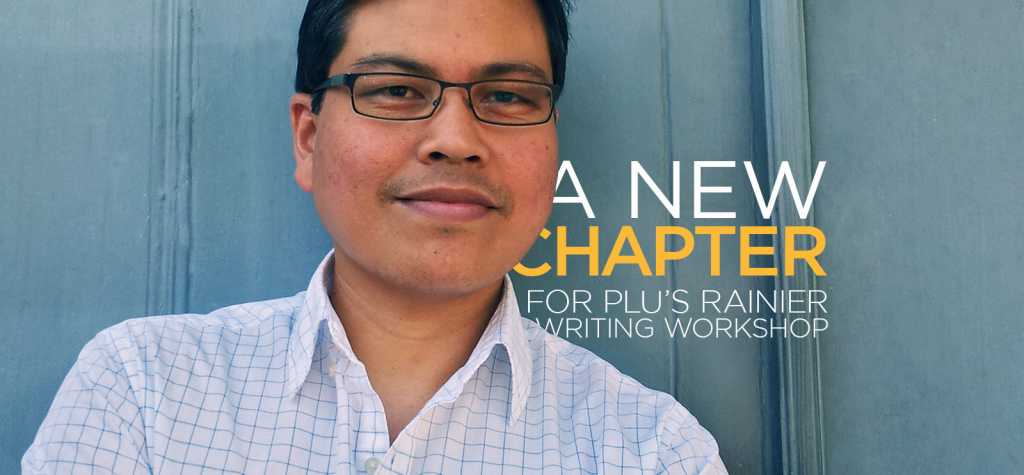Page 133 • (1,739 results in 0.046 seconds)
-

technologies and partner with campus and community groups to integrate historical storytelling with art, music, literature, environmental studies, business, and more! Check out our new History department podcast at https://innovativehistory.org Graduates from the last 5 years: Their jobs Membership Coordinator, Washington State History Museum Licenced Therapist, Arizona Junior Research Associate, Corporate Governance, Strive Infantry Platoon Leader, US Army Infantry Platoon Leader, US Army Client Program
-
wontons The class getting to try their hand at folding and sealing wontons Steaming the dumplings Veggie eggrolls This year's theme is Food & Literature
-

,” Barot said. “They created a program that is very intricate, with a lot of moving parts, and it’s also very successful. It’s generated alumni who publish books, who are visible and who are carrying the name of the program and of PLU out into the literary world—that’s a serious accomplishment.”Barot is no stranger to accomplishment—or to the workshop concept: Now in his ninth year at PLU, Barot is the author of two award-winning collections of poetry: The Darker Fall (2002), winner of the Kathryn A
-
and as faculty in PLU’s low-res MFA program are my dream jobs! What was your favorite part about majoring in English? That part of my job as a student was to read literature and write poetry—I still do that for fun on my own!
-
numerous books. Through her editing and publishing, Judith was a tireless advocate of other writers. She edited or co-edited three collections of nonfiction that have become classics in the field: In Short, In Brief and Short Takes , all published by W.W. Norton. She also co-edited, with Ted Kooser, The Poet’s Guide to the Birds . Most recently, Judith started Ovenbird Books, a press dedicated to publishing inventive books of creative nonfiction. As the poetry reviewer for The Georgia Review, a role
-
ScheduleMary Anne O'NeilPresentation Title: “Mystics, Martyrs, and Resisters: Three French Catholic Poets of World War II and the Holocaust Who: Mary Anne O’Neil, professor of French emeritus, Whitman College, Walla Walla, Wash. Bio: Mary Anne O’Neil is a professor of French emeritus from Whitman College in Walla Walla, Wash., where she taught Spanish and French language, French literature, and general studies for more than 30 years. Her main interests are 20th century French poetry, especially religious
-
historical juncture.) German speakers have become household names in the fields studied by humanities scholars, whether in literature (Johann Wolfgang von Goethe, the brothers Grimm, Franz Kafka), film (Werner Herzog, Wim Wenders), music (Wolfgang Amadeus Mozart, Johann Sebastian Bach, Ludwig van Beethoven), art (Caspar David Friedrich, Anselm Kiefer, Gerhard Richter), philosophy (Immanuel Kant, Karl Marx, Hannah Arendt), and religion (Martin Luther, Dietrich Bonhoeffer, Paul Tillich), to name a few
-

black colors. A countdown clock appears on the left side of the screen counting down from 60 seconds] (timer beeping) English is the study of how people use the creative power of the written word. Storytelling is one of the most powerful forms of human expression. It’s an exciting time to study English. The surge in digital media and technology means that people are reading and writing in all sorts of new ways. At PLU, English majors can choose a concentration in literature, creative writing, or
-
Roe Projects2004: Samuel Torvend & Matthew Tabor, “Religious Responses to Hunger and Poverty in Western Washington” 2005-6: Patricia Killen, Roberta Brown, & Asha Ajmani, “Early Washington in the Letters of A.M.A. Blanchet, Bishop of Walla Walla and Nesqually, 1846-1879” Eric Nelson & Steve Erbey, “A Troubled Look: An Investigation of the Eye and Face in Ancient Medicine and Literature Doug Oakman & Ronan Rooney, “Q, Literacy, and the Galilean Jesus Movement in Social Perspective” 2006-7: Bridget
-
ENGL Writing Conc Poetry Fiction 4-year plan (pdf) view download
Do you have any feedback for us? If so, feel free to use our Feedback Form.


